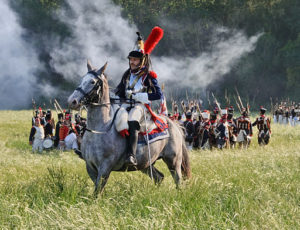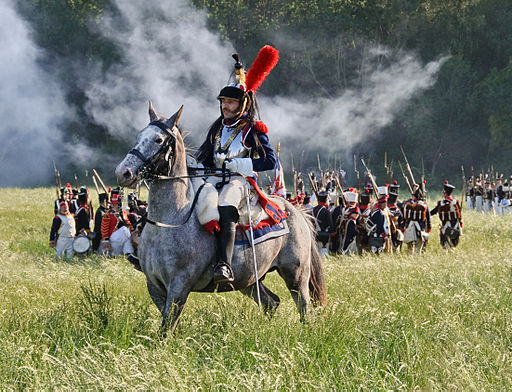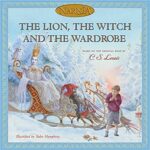Violence In Speculative Literature
 One of the knocks on Christian fiction, or readers of Christian fiction, depending on who is doing the criticizing, is that there are taboos against profanity and graphic or explicit sexual activity but all stops are out when it comes to violence. Speculative fiction, by the nature of its good verse evil trope, seems to lend itself to a lot of violence, so the increase in Christian speculative fiction, whether provided by traditional publishers, small presses, or self-publishing, seems to add to the “all stops out” perception as far as violence is concerned.
One of the knocks on Christian fiction, or readers of Christian fiction, depending on who is doing the criticizing, is that there are taboos against profanity and graphic or explicit sexual activity but all stops are out when it comes to violence. Speculative fiction, by the nature of its good verse evil trope, seems to lend itself to a lot of violence, so the increase in Christian speculative fiction, whether provided by traditional publishers, small presses, or self-publishing, seems to add to the “all stops out” perception as far as violence is concerned.
Interestingly, most of the critics don’t seem to be saying violence should be tempered, even reigned back, in order to be more consistent with the language and sexual standards. Rather, the approach seems more to be a means to shame readers for tolerating such “hypocrisy.”
I’ve answered those criticisms from my own personal perspective. Language goes straight into my mind and sexually explicit scenes can be titillating, for men or women, or both. On the other hand, violence on screen doesn’t incite in me the desire to perpetrate violence. It doesn’t induce me to hate.
But . . .
Recently I saw the trailer for the movie version of Insurgent, book two of the Divergent series by Veronica Roth, a professing Christian. Even before realizing what I was watching, I thought that the story seemed particularly violent. Too violent? Did I want to see a movie with such willful inhumanity to man?
The fact that I had those thoughts is an indicator that even I, who do not find violence an enticement to do evil, have some innate sense of enough is enough.
Yet the fact remains: speculative fiction is built upon a violent struggle. The goal is never to learn to co-exist with evil or to just learn to get along or to agree to disagree. Instead, two opposing forces, two incompatible worldviews square off. Because they are mutually exclusive and both have their fierce proponents willing to die before they’d surrender, a lot of people die.
Rick Copple brought up some important points in his excellent article this past January entitled “Christianity, Gore, And Death.” Essentially, he said our culture, including Christians, has become fascinated with death, but only on the entertainment level. We still hide actual death away, whereas the Bible confronted it head on. The question for writers as believers is how do we handle death:
Are the “bad guys” consistently ending up dead while the “good guys” always avoiding it? Is death seen mainly as a punishment or defeat?
These questions seem squarely aimed at fantasy. If evil doesn’t die, won’t that be giving the false idea that evil can escape punishment, or worse, that evil might find a way to win? If good doesn’t win, won’t that paint stories with hopelessness—life is struggle and in the end we die.
But good versus evil stories are fraught with problems.
(1) They can be predictable. As soon as the moral lines are drawn, we know who wins and who loses.
(2) They can trivialize the loss of life. Hordes of goblins die in The Hobbit and an equal number of orcs die in The Lord Of The Rings trilogy, yet readers or viewers are only glad or maybe relieved, even as two of the heroes keep score of their kills.
(3) They can over exaggerate the ease with which evil dies. Though the trolls were larger and stronger than Bilbo and the dwarfs, they nevertheless could be outwitted and thus turned into stone.
(4) They can over exaggerate the strength of the oft out-manned forces for good. In The Lord Of The Rings, while surrounded in the Keep, the Riders of Rohan were able to withstand assault until help came unexpectedly.
Admittedly dystopian fiction seems less likely to follow these patterns. Good guys die. In the Hunger Games (Suzanne Collins), many of Katniss’s allies die. The inciting incident in Jill Williamson’s Captives, the first book in the Safe Lands series, is the slaughter of the elders of Glenrock and the capture of all the women, children, and youth. And in Divergent, Tris’s parents both die.
In addition, Williamson eschews the obvious “small, rural community is good, and advanced, techno-savvy big city is bad” metaphor, meaning that the divergent worldviews aren’t of necessity mutually exclusive. Collins also brings into question the whole concept of winning by violence, and in the end, Roth uses violence and death to show a different kind of victory.
J. K. Rowling also broke the mold in the Harry Potter series by having a number of the good guys die.
But is all that violence necessary?
In many respects, I think speculative fiction is more honest than stories without violence. Life is a struggle, not for the things we often focus on—a better job or a raise in pay, what to watch on TV, whether to go cable or Dish, who’s going to make the Final Four, whether the lump you felt is cancer, whether there’s enough money to buy a new car and to do the remodel you need—but a spiritual struggle, often embedded in those other, everyday life things that stare us in the face all day long.
 The good-versus-evil trope in speculative fiction can open our eyes to the good versus evil in real life. The violence and the life-and-death nature of the struggle can show us the seriousness of our everyday choices. In other words, violence has an important part to play in speculative fiction.
The good-versus-evil trope in speculative fiction can open our eyes to the good versus evil in real life. The violence and the life-and-death nature of the struggle can show us the seriousness of our everyday choices. In other words, violence has an important part to play in speculative fiction.
Readers are still debating what Suzanne Collins intended in the Hunger Games, especially in regard to the use of force. Is there a way to combat evil without mimicking evil?
In many respects it’s the question J. R. R. Tolkien asked in The Lord Of The Rings. Had Frodo claimed the ring or given it to Gondor, he or they would have eventually become the evil the forces of good were opposing. The quest, then, was to destroy the ring, not to assassinate Sauron.
But in taking on those questions, writers must still show violence. The goal is to do so without being predictable, without using excessive and graphic depiction, and without misrepresenting either the forces of evil or the forces of good. In other words, some evil may escape and some good may die—unless, of course, a story is about the final showdown of evil against God when He will judge His enemies for all time.
In the end, I think violence is here to stay in speculative fiction, and I don’t think it’s hypocritical to admit it belongs while rejecting crude language or depiction of sexual activity.












































One reason why I think violence is tolerated in fiction in general is because it is a vice we can “enjoy” while in reality it remains far from our real lives. If I wanted to, I could indulge in foul language, sexual transgressions, or other moral failings with ease, but gun-slinging slaughter is way outside my realm of experience. It allows the reader to say “yeah, that’s awful, but I’d never do that,” and they’d probably be right. My books are often wildly violent and while I don’t want readers to revel in the bloodshed, I don’t feel guilty about writing them because those are the stories I feel compelled to tell. All stories are about struggles, and violence is a strong manifestation of those struggles, which, for better or worse, are really interesting to read about.
Thanks for saying that.
Thanks to Mr. Burnett for the re-do of the web site. However, there are some problems with the Comment apparatus. I’m using the latest version of Firefox for Windows.
1) The Comment apparatus says “Required fields are marked *,” but there aren’t any asterisks.
2) The fields aren’t labeled. I didn’t know what was required, or in which field, until I made a mistake, and was told that I had not entered an e-mail address in the second field.
3) Any letters entered seem to be converted to capitals. That does interesting things to some of our names — mine is LaBar — and may possibly also make some e-mail and web site addresses incorrect.
Thanks for your feedback, Martin.
The entry field glitches will be addressed soon. WordPress comment fields are not very easy to customize!
Whoops — lthough the entry box has me as MARTIN LABAR, somehow when my comments are published, I’m Martin LaBar, which is correct. Interesting.
I wonder what would happen if, say, LeBron James commented?
Whoops — although the entry box has me as MARTIN LABAR, somehow when my comments are published, I’m Martin LaBar, which is correct. Interesting.
I wonder what would happen if, say, LeBron James commented?
I completely agree with this post. A good story needs to have conflict. Not every story will need violence as a form of conflict, but certain stories absolutely require it. (Can you imagine how much less impact the Harry Potter series would have had, for example, if Rowling had eschewed violence?)
I think it’s possible to have non-violent SF, and it be good, because SF and even fantasy can be about the idea as much as the plot. It’s just that most Christian spec fic tends to be about melodrama than ideas. Actually much of modern secular spec fic is the same way, but I’ve rarely seen any Christian book tackle speculation about the future apart from dystopian worlds at all.
David, what stories are you thinking about that are melodramatic? I’m not aware of that as a problem in Christian speculative fiction.
I’ll also ask this: if a fantasy trope is to show good versus evil, how does one do that without violence? I don’t quite know what you mean when you say speculative fiction can be “about the idea as much as the plot.”
I’m afraid I expect a good plot, no matter what the genre. (It’s one reason I have a very short attention span for “literary fiction” if the author doesn’t include an actual story).
Re. tackling the future, have you read Katy Tyer? Chris Walley? John Otte’s Numb? I’d be surprised if there aren’t others. It’s not my genre, but those came off the top of my head.
Becky
Not trying to stir the pot here, but I fear I may. If so much violence is needed to enhance the conflict in many of these stories, then why is profanity looked down on. I’m not advocating the use of profanity, and don’t use it myself, but I stand by my question. In reality, when there’s a great deal of violence happening, there’s usually quite of bit of profanity being used to talk about or recount it. If all the good guys are watching their language, wouldn’t it enhance the intensity of the villain if he “talked like a sailor”? I get that this is all fiction, but shouldn’t some of it seem realistic? I often worry that my villains don’t come off quite as menacing as I’d like, because they’re too clean.
Toi, I think I addressed your comment, at least in part, in the article. This, of course, is only my opinion. I’m not speaking for those who actually make the decisions. Here’s the pertinent paragraph:
As a writer, I think we can find ways of making the language of our bad guys seem realistic. I mean, we are writing speculative literature. So why not invent words or if there’s another language, give those who speak that language swear words. The point is, what is offensive to them doesn’t have to be offensive to our readers, I don’t think.
Language is fluid. What once offended the culture is today rather commonplace, largely because someone decided they wanted to be offensive to get attention. So others copied them and now “bad words” are no longer so bad. And ones that used to be impolite are now so offensive the media will only refer to the word by its initial, if that.
In light of that, using “bad language” is actually a way to date a work of fiction much the way using general slang terms does.
I tend to think writers who want to do the best job possible can find ways to make the antagonist and his minions sound as evil as you want without offending readers (or make them roll their eyes because the bad guys sound like kindergarten teachers.)
That’s my theory and I’m sticking with it. 😉
Becky
Thanks Becky for your further insight into my question. I guess it all boils down to social programming and insecurity. I feel sometimes I don’t appeal to others with my tales of fantasy, but I guess that’s the point. It’s not for everyone. I don’t really think profanity is necessary to make a villain more believable, but I sometimes wonder about the villains people see in movies and on TV and wonder if they are all being compared against one another.